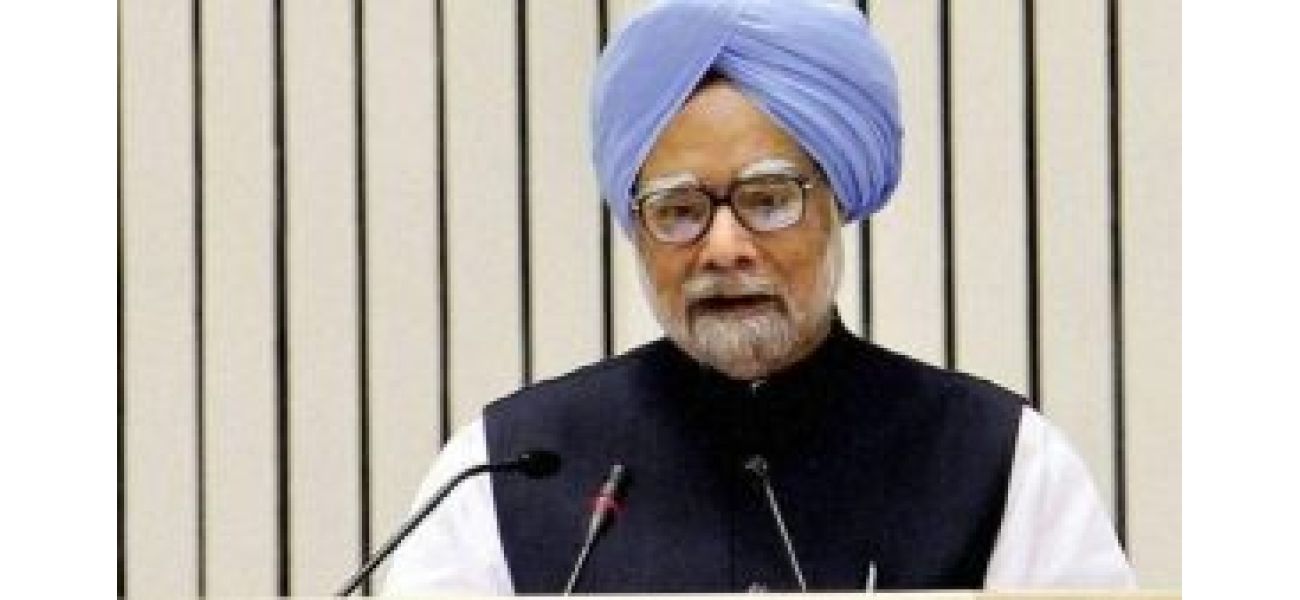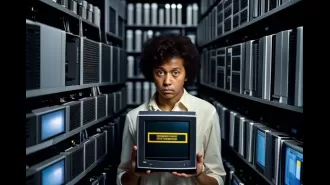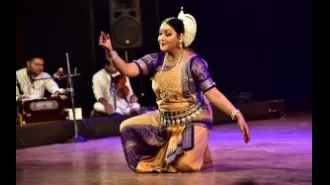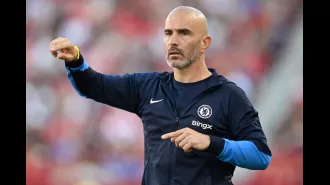Manmohan Singh: Indian leader known for his progressive policies and unique approach to politics.
Manmohan Singh was a key figure in India's economic reform, freeing it from restrictive policies and steering it away from economic crisis.
December 26th 2024.

On Thursday night at Delhi's All India Institute of Medical Sciences, former prime minister Manmohan Singh passed away at the age of 92. He was a key figure in shaping India's economic landscape, freeing it from the constraints of the licence raj and leading it away from the brink of financial collapse, even when the country's gold reserves were pledged. Singh, who was known for his scholarly background and his role as an architect of India's modernization, also evolved into a determined and resolute politician.
He was a man of unassuming nature, with a deep knowledge and a soft-spoken demeanor. He was a skilled consensus-builder, able to bring people together and find common ground. Singh was a renowned name in the global financial and economic sectors, having served as both the country's prime minister for 10 years and its finance minister prior to that.
Singh's journey to the top of India's political sphere was unconventional, to say the least. He was a copybook example of a reluctant politician, who stumbled into the rough and tumble of mainstream politics. When Sonia Gandhi stepped back from taking the prime minister's post, despite the clamour from her party, she chose Singh instead. And so, the academic bureaucrat became the 14th prime minister of India in 2004.
The partnership between Sonia Gandhi and Singh lasted for 10 years, and was often cited for its equanimity and as an example of a functional working relationship. Of course, there were inevitable tensions and challenges, as Singh also had to balance the interests of the United Progressive Alliance's coalition partners.
Former Jammu and Kashmir governor N N Vohra recalled how Singh always stayed true to his ethical principles, even when it put him at odds with his own political party. In 2014, the UPA was voted out of power amidst a cloud of corruption scandals, paving the way for BJP's unbroken rule since then. While Singh was hailed for his efforts in liberalising and privatising the Indian economy in the early 1990s, he also faced criticism for turning a blind eye to corruption within his own government.
Despite the challenges, Singh remained resilient and determined. During his first tenure as prime minister, the coalition faced a major hurdle when India signed a civil nuclear deal with the US. The Left parties, who were part of the UPA coalition, withdrew their support in protest. However, Singh's government managed to survive and win a confidence vote in the Lok Sabha.
Towards the end of his tenure as prime minister, Singh faced a barrage of criticism for his government's record and the Congress party's positions on controversial issues such as the 2G scam. But he refused to back down and declared that he was not weak. In January 2004, he famously said, "I honestly hope history would be kinder to me than the contemporary media, or for that matter, the opposition parties in Parliament."
More than two decades later, Congress president Mallikarjun Kharge paid tribute to Singh's legacy, stating, "Undoubtedly, history shall judge you kindly, Dr. Manmohan Singh ji!" Indeed, the decade with Singh at the helm of affairs is widely considered to be a period of unprecedented growth and prosperity for India.
Singh's rise to the position of India's prime minister was truly unique in the country's political history. Always seen in his trademark powder blue turban, he was appointed as the finance minister in 1991 in the Narasimha Rao government. His role in implementing comprehensive economic reforms is now recognized worldwide.
In January 1991, India was struggling to finance its essential imports and repay its debts. However, under Singh's leadership, the economy was soon stabilized and the country was able to repurchase the gold it had pledged earlier in the year. Vohra, who served as both the defense and home secretary at the time, recalled having to beg Singh for financial relief for his department.
Born in 1932 in the Punjab province of undivided India, Singh completed his education and went on to become an academic, teaching at prestigious universities such as Punjab University and the Delhi School of Economics. He also worked at international organizations like UNCTAD and served as the secretary general of the South Commission.
In 1971, Singh joined the government of India as an economic advisor, and soon rose through the ranks to become the chief economic advisor in the Ministry of Finance. He held several key positions in the government, including secretary in the Finance ministry, deputy chairperson of the Planning Commission, governor of the Reserve Bank of India, and advisor to the prime minister. He also served as the chairperson of the University Grants Commission.
Singh's political career began in 1991, when he was elected as a member of the Rajya Sabha. He went on to become the leader of the opposition in the upper house between 1998 and 2004. Interestingly, despite serving as prime minister twice, Singh never contested a Lok Sabha election and spent his entire 33-year parliamentary tenure as a member of the Rajya Sabha.
Singh was often criticized by the BJP for presiding over a government riddled with corruption. They even gave him the nickname "MaunMohan Singh," claiming that he remained silent on corrupt practices within his own cabinet. However, Singh always maintained his dignity and composure.
He is survived by his wife Gursharan Kaur and their three daughters. Singh's family was known for their low-key lifestyle and they continued to maintain their privacy even during his 10-year tenure as prime minister. Despite his quiet demeanor, Singh was a firm and determined leader.
Sources close to him revealed that Singh had considered stepping down as prime minister in 2013, after Congress leader Rahul Gandhi publicly criticized his government's decision to bring an ordinance allowing convicted politicians to contest elections. Singh was abroad at the time. He was also highly critical of Prime Minister Narendra Modi's demonetization move in 2016, calling it "organized loot and legalised plunder."
In his reply to a no-confidence motion against his government in 2008, Singh made a prophetic statement, saying, "The greatness of democracy is that we are all birds of passage! We are here today, gone tomorrow! But in the brief time that the people of India entrust us with this responsibility, it is our duty to be honest and sincere in the discharge of these responsibilities." His words ring true even today, as the country mourns the loss of a respected leader and statesman.
He was a man of unassuming nature, with a deep knowledge and a soft-spoken demeanor. He was a skilled consensus-builder, able to bring people together and find common ground. Singh was a renowned name in the global financial and economic sectors, having served as both the country's prime minister for 10 years and its finance minister prior to that.
Singh's journey to the top of India's political sphere was unconventional, to say the least. He was a copybook example of a reluctant politician, who stumbled into the rough and tumble of mainstream politics. When Sonia Gandhi stepped back from taking the prime minister's post, despite the clamour from her party, she chose Singh instead. And so, the academic bureaucrat became the 14th prime minister of India in 2004.
The partnership between Sonia Gandhi and Singh lasted for 10 years, and was often cited for its equanimity and as an example of a functional working relationship. Of course, there were inevitable tensions and challenges, as Singh also had to balance the interests of the United Progressive Alliance's coalition partners.
Former Jammu and Kashmir governor N N Vohra recalled how Singh always stayed true to his ethical principles, even when it put him at odds with his own political party. In 2014, the UPA was voted out of power amidst a cloud of corruption scandals, paving the way for BJP's unbroken rule since then. While Singh was hailed for his efforts in liberalising and privatising the Indian economy in the early 1990s, he also faced criticism for turning a blind eye to corruption within his own government.
Despite the challenges, Singh remained resilient and determined. During his first tenure as prime minister, the coalition faced a major hurdle when India signed a civil nuclear deal with the US. The Left parties, who were part of the UPA coalition, withdrew their support in protest. However, Singh's government managed to survive and win a confidence vote in the Lok Sabha.
Towards the end of his tenure as prime minister, Singh faced a barrage of criticism for his government's record and the Congress party's positions on controversial issues such as the 2G scam. But he refused to back down and declared that he was not weak. In January 2004, he famously said, "I honestly hope history would be kinder to me than the contemporary media, or for that matter, the opposition parties in Parliament."
More than two decades later, Congress president Mallikarjun Kharge paid tribute to Singh's legacy, stating, "Undoubtedly, history shall judge you kindly, Dr. Manmohan Singh ji!" Indeed, the decade with Singh at the helm of affairs is widely considered to be a period of unprecedented growth and prosperity for India.
Singh's rise to the position of India's prime minister was truly unique in the country's political history. Always seen in his trademark powder blue turban, he was appointed as the finance minister in 1991 in the Narasimha Rao government. His role in implementing comprehensive economic reforms is now recognized worldwide.
In January 1991, India was struggling to finance its essential imports and repay its debts. However, under Singh's leadership, the economy was soon stabilized and the country was able to repurchase the gold it had pledged earlier in the year. Vohra, who served as both the defense and home secretary at the time, recalled having to beg Singh for financial relief for his department.
Born in 1932 in the Punjab province of undivided India, Singh completed his education and went on to become an academic, teaching at prestigious universities such as Punjab University and the Delhi School of Economics. He also worked at international organizations like UNCTAD and served as the secretary general of the South Commission.
In 1971, Singh joined the government of India as an economic advisor, and soon rose through the ranks to become the chief economic advisor in the Ministry of Finance. He held several key positions in the government, including secretary in the Finance ministry, deputy chairperson of the Planning Commission, governor of the Reserve Bank of India, and advisor to the prime minister. He also served as the chairperson of the University Grants Commission.
Singh's political career began in 1991, when he was elected as a member of the Rajya Sabha. He went on to become the leader of the opposition in the upper house between 1998 and 2004. Interestingly, despite serving as prime minister twice, Singh never contested a Lok Sabha election and spent his entire 33-year parliamentary tenure as a member of the Rajya Sabha.
Singh was often criticized by the BJP for presiding over a government riddled with corruption. They even gave him the nickname "MaunMohan Singh," claiming that he remained silent on corrupt practices within his own cabinet. However, Singh always maintained his dignity and composure.
He is survived by his wife Gursharan Kaur and their three daughters. Singh's family was known for their low-key lifestyle and they continued to maintain their privacy even during his 10-year tenure as prime minister. Despite his quiet demeanor, Singh was a firm and determined leader.
Sources close to him revealed that Singh had considered stepping down as prime minister in 2013, after Congress leader Rahul Gandhi publicly criticized his government's decision to bring an ordinance allowing convicted politicians to contest elections. Singh was abroad at the time. He was also highly critical of Prime Minister Narendra Modi's demonetization move in 2016, calling it "organized loot and legalised plunder."
In his reply to a no-confidence motion against his government in 2008, Singh made a prophetic statement, saying, "The greatness of democracy is that we are all birds of passage! We are here today, gone tomorrow! But in the brief time that the people of India entrust us with this responsibility, it is our duty to be honest and sincere in the discharge of these responsibilities." His words ring true even today, as the country mourns the loss of a respected leader and statesman.
[This article has been trending online recently and has been generated with AI. Your feed is customized.]
[Generative AI is experimental.]
0
0
Submit Comment





